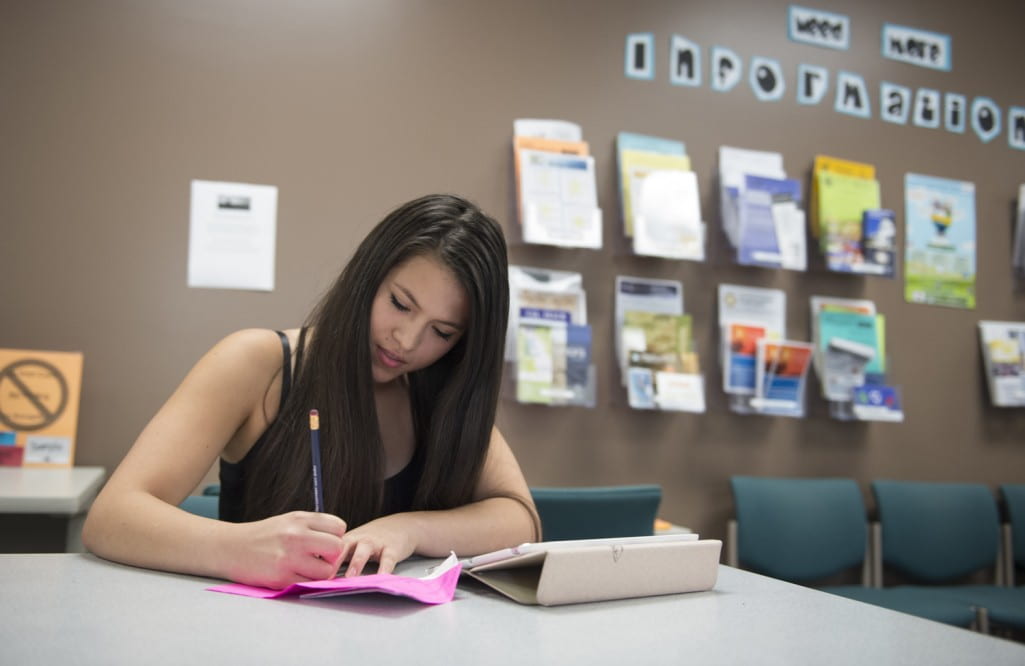Life-changing support
UCI gets $1.1 million to help first-generation and low-income students realize their potential

In fall 2013, Zuri Sandoval became the first person in her family to go to college. A native of El Salvador, she’d attended five different high schools from Kansas to California while her father moved the family in pursuit of better jobs, and she still managed to earn the A’s needed to gain admittance to the University of California, Irvine. Still, her background didn’t fully prepare her for the demands of higher education.
“My first year was kind of difficult,” Sandoval recalls. “I didn’t know how to study. I didn’t know how the system worked. I didn’t know how to engage in college life. I was like, ‘I made it to UCI. What do I do now?’”
She discovered the answers at UCI’s Student Support Services, where she not only sharpened her study skills but picked up valuable tips from mentors on the ins and outs of academia, such as how to talk to professors and take better notes in class. SSS also provided a comfortable space where she could hang out, do her homework and meet people.
“I commute from San Pedro, so this is like my second home,” says Sandoval, a third-year criminology, law & society major. “I was kind of lost until I found this place.”
Housed in the Division of Undergraduate Education, SSS gives students like her the resources they need to get the most from their college experience. Now it will be able to help even more undergraduates – thanks to a five-year, $1.1 million Trio grant from the U.S. Department of Education. (Per the grant requirements, UCI will contribute an additional 33 percent in matching funds.)
“As the first person in my family to attend college, I know firsthand how higher education can transform young lives,” says Chancellor Howard Gillman. “This award enables UCI to expand its efforts to ensure that all of our students thrive in the competitive and challenging environment of a top-tier research university.”
The grant will allow SSS to provide services for 140 UCI students who are first-generation, low-income (defined as eligible for federal Pell Grants) or disabled. Their participation in the program and performance (degree completion rate) will be tracked over the years so that the Department of Education can assess which support services have the most impact on their academic careers.
“What’s great about a grant like this is that it gives us the tools we need to experiment with ways to get students to be successful,” says Michael Dennin, dean of undergraduate education and vice provost for teaching and learning. “Taking advantage of the full range of resources the university has to offer will give them the most effective education.”
A portion of the award will be used to pay for tutors to assist students with challenging courses and work with them in developing their study skills through UCI’s Learning & Academic Resource Center.
“You have these students who are very bright, very capable, who clearly could succeed at college,” Dennin says. “But some come from low-income-area high schools where they didn’t have quite the same level of education [as their peers], particularly in math and reading. Instead of putting them in a remedial course and having them start out behind everyone else, it’s better to put them in a regular course and provide supplemental instruction.”
In addition, the Trio grant will let SSS hire extra staff to give participants more individualized attention.
“This is beyond course planning. We want them to be aware of everything UCI has to offer, such as the Undergraduate Research Opportunities Program, scholarships, fellowships and internships,” Dennin says. “We acclimate them to the university.”
Sandoval is a textbook example of the difference such services can make.
Before discovering SSS, she was getting respectable grades, mostly B’s and the occasional C, but she wanted to do better. After LARC tutoring and SSS coaching, she’s earning A’s and the occasional B.
Sandoval is now pursuing a second bachelor’s degree – this one in psychology & social behavior – and plans to attend graduate school with an eye toward someday working as a counselor. For as long as she’s at UCI, Sandoval also intends to continue frequenting SSS – to help first-generation students like herself.
“I want to let everyone know [about SSS] so they can get on the right path too,” she says.